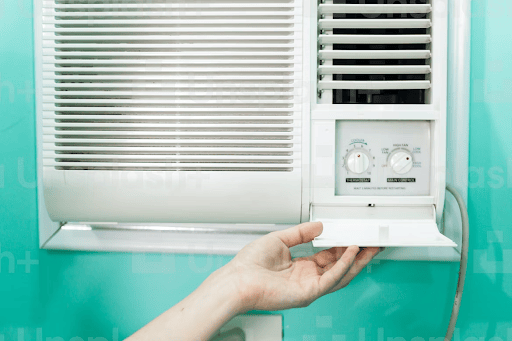
If you want to purchase an air conditioner, there are some important factors to consider so you can make an informed decision.
Picking out the best air conditioner for your home can be challenging with so many available options available on the market. Here are six things to consider when buying an air conditioner.
Type of AC
Each type of AC, such as a central or window unit, has unique installation requirements and features. Having a better understanding of these types of air conditioners can help you choose the most suitable AC for your needs.
Window Air Conditioning System
Window air conditioning systems are self-contained units, which means that all the AC components — including the condenser, fan, evaporator, and thermostat — are housed in the same unit.
These AC units are one of the most energy-efficient options for cooling single rooms.
Central Air Conditioning Systems
A central air conditioning unit is a split system with more parts than a window AC, including an indoor evaporator coil and an outdoor condenser unit.
Central air conditioners provide adequate cooling around the entire building through the ductwork. Although installing the central air conditioning unit can be expensive, it is cost-effective for cooling larger spaces.
Central air conditioning systems are also eco-friendly as they consume relatively less energy and keep consistent temperatures in all rooms around the house or apartment.
Cooling Capacity
Another thing to keep in mind when on the search for an air conditioner is the cooling capacity. If you want an AC system for a larger area, buying an AC with less cooling capacity might not deliver the temperatures you’re looking for.
On the other hand, an AC with more tonnage installed in a smaller area could result in overcooling. For example, an AC with high capacity could be overkill if you have a room with a low ceiling.
Many retailers and AC manufacturers list room sizes and relevant tonnage to make it easier for buyers to find the right fit. You could also consult a qualified HVAC technician to avoid making a costly mistake.
Energy Efficiency
Out of all appliances installed in homes, air conditioning units might consume the most electricity. Unfortunately, many purchase air conditioning systems with the latest features but don’t consider energy efficiency ratings. This can lead to increased energy bills.
One way to avoid purchasing such an AC unit is to check the Combined Energy Efficiency Rating (CEER). The CEER rating indicates how efficient the AC is at cooling.
The higher this rating is, the less power the AC will consume. The Energy Efficiency Rating (EER) and Seasonal Energy Efficiency Rating (SEER) are also used to rate the energy efficiency of the AC.
Price
The price of air conditioners can range from a few hundred dollars to thousands of dollars depending on several factors, such as the cooling capacity, features, and size. Remember that higher prices could help lower usage costs through better efficiency.
You may also consider whether you need advanced features such as remote access, a programmable thermostat, or an energy-saving mode.
Some air conditioners also offer built-in air purifiers, which help improve air quality. Whether or not you are sensitive to air quality, keeping the indoor air clean is good for your health.
Inverter Technology
Many older AC models have a rotary compressor that can make noise when it compresses refrigerant for cooling. But noise is not the only issue.
AC models that support rotary compressors also draw more current, leading to more energy consumption. However, most newer A/C models offer inverter technology.
Inverter ACs are relatively quieter because they can adjust the compressor’s speed as required. ACs with inverter technology also experience fewer problems and breakdowns than conventional air conditioning systems.
Air conditioning systems that support inverter technology are also more energy efficient. The inverter-controlled compressor does not turn ON and OFF as conventional rotary compressors when the room is cooled.
Instead, they keep running at a low speed to maintain the desired temperature, which results in low energy consumption.
Maintenance Requirements
One more thing you should check before buying an AC is its maintenance costs and compare it with those of other models.
Some air conditioning systems can have higher maintenance costs making them less cost-effective than other options, which is why it is essential to research the long-term ownership costs of the A/C.
You can also seek the guidance of an HVAC professional to help you determine the right A/C for your needs.
Once you buy an air conditioner, stick to the factory-recommended maintenance schedule and get professional installation service from HVAC contractors for maximum performance and longevity.
If the AC does not get regular maintenance, it could affect its performance, efficiency, and reliability.
